Challenges & opportunities
Solutions and policies for modern energy provision
According to the United Nations Department of Economic and Social Affairs (UN-DESA), the global population without access to electricity fell from about 1.2 billion in 2010 to around 840 million in 2017. The share of renewables in final energy consumption increased from 16.6% in 2010 to 17.5% in 2016. But despite this, progress has been mostly uneven, and the deployment of renewables is lagging in transport, industry, heating and cooling. Energy efficiency improvements must also increase to a rate of 2.7% per year to meet the global target.
Accelerated action is needed to ensure reliable access to affordable, sustainable and modern energy for all, and achieve SDG 7 by 2030. Especially as the world population grows and the degree of urbanisation increases, we urgently need new solutions and policies for modern energy provision. The transition to district energy systems, for example, could reduce primary energy consumption by up to 50% by 2050, according to a report launched by the United Nations Environment Programme (UNEP). As stated in the UNEP report, such a transition could also contribute up to 60% of the energy sector’s emission reductions required by 2050.
Accelerated action to achieve SDG 7 and maximise synergies between the energy sector and other sectors will help advance numerous other SDGs as well. The COVID-19 crisis, for example, has shown that reliable access to energy is indispensable for hospitals and first-line medical services to treat critical patients, avoiding human catastrophe and speeding up the recovery process. Reliable access to modern energy services not just plays a critical role in supporting people’s health. It also catalyses economic development and helps enable a just and equitable transition to a climate-safe future.
Conference programme
Energy sessions
Watch our conference sessions. Sessions labeled were live-streamed from our studios in Brussels.
Energy
Deep dive session
Environmental impacts of geothermal energy
26/10/2020, 15:15 - 16:45
While geothermal sources could play a significant role in ensuring access to energy for all, production today is only at 7% of the estimated global potential. Negative perceptions raise concerns with decision-makers and potential investors about the possible environmental impact and risks of deep geothermal energy production. Social resistance often results in significant slowdowns to the deployment of deep geothermal resources. Life cycle assessment of geothermal projects is the best way to address these concerns and to guarantee deep geothermal energy production complies with environmental regulations.
Chaired by
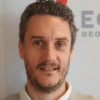
Philippe Dumas
European Geothermal Energy Council
Secretary General
Since September 2008, Philippe Dumas is the Secretary General of the European Geothermal Energy Council (EGEC), an international association founded in May 1998 and based in Brussels, Belgium.
EGEC unites more than 120 European companies and organisations working in the geothermal field and represents 500+ entities from 22 European countries.
The main goal of EGEC is to foster market development for geothermal energy and to work for the improvement of business conditions in Europe.
Towards a sustainable society: how can geothermal help?
The heat beneath our feet has been serving mankind for thousands of years in various forms: cooking, bathing, heating. From the hot springs in Japan to the geysers in Iceland, these manifestations of the earth´s heat have become the synonym for geothermal energy. Over the past decade, countries like Costa Rica, Indonesia, the Philippines, Turkey and Kenya have taken the lead regarding the deployment of geothermal power, adding a significant amount of clean power to the energy mix in their regions.
More recently, attention and focus of policy makers around the globe is shifting to the ´heat transition´: how can we phase out fossil-fuel based heating and cooling in our society´s energy consumption in cities and industries. The focus on clean heat has turned into an opening for geothermal energy to position itself beyond electricity and is clearly on the rise as a viable solution for deep decarbonisation.
Going forward, promising technologies around lithium extraction from geothermal production sites and scalable baseload power through innovative drilling offer blueprints of where society may benefit from in the next decade. Geothermal resources can help to achieve many of the 17 Sustainable Development Goals. SDG 7 (affordable and clean energy), SDG 11 (sustainable cities and communities) and SDG 12 (responsible consumption and production) are the three major goals served by the geothermal sector.

Marit Brommer
International Geothermal Association
Executive Director
Marit Brommer is the Executive Director of the International Geothermal Association (IGA) since 2017. She has 15 years of experience in the extractive industry where she has worked as subsurface portfolio manager. At the IGA, she is focusing on creating strong partnerships with international operating organisations and industries. She is engaged in strategic initiatives, to consistently add value to the geothermal sector by creating opportunities for geothermal development underpinning the vision of achieving a net-zero future.
IGA is a global platform representing the geothermal sector and serves 5500 members through 35 affiliated country members. Its mission is to facilitate and promote the uptake of geothermal resources. The IGA flagship, the World Geothermal Congress, takes place every three years. This congress convenes the global geothermal sector and sets the future agenda.
Environmental aspects, regulation and mitigation measures of geothermal energy production
Understanding the potential for producing damages and for limiting their occurrence and consequences is a main goal of sustainable geothermal development. Through best practices and technologies, including monitoring and mitigation measures, negative environmental effects are avoided whenever possible, or otherwise minimised.
In the framework of the European GEOENVI project, the environmental effects from geothermal development have been categorised based on safeguard subjects, i.e., endpoint indicators. Potential environmental impacts and risks have then been confronted with available mitigation measures and environmental regulations at the European level and in national case studies. It appears that environmental regulation, practices and technologies are already rather comprehensive. However, some regulatory challenge has been defined for topics that raise concerns among the principal stakeholders.
A process is needed to arrive at a set of recommendations on environmental regulation, taking into account best practices of national regulations and sharing guidelines among countries.

Adele Manzzella
Institute of Geosciences and Earth Resources, Italian National Research Council
Coordinator of geothermal activities and projects
Adele Manzella is a senior researcher. She has a geophysical background and is an expert in geothermal energy. Shallow and deep crustal and geothermal investigation, technical and social aspects of geothermal energy, and data organisation are her main fields of research. She coordinated two main geothermal assessment projects in Italy and actively participated in numerous European geothermal research and coordination projects.
Life Cycle Assessment as a tool to determine the environmental impacts of geothermal projects
The International Panel on Climate Change (IPCC) considers deep geothermal energy as a promising way to reduce the greenhouse gas emissions. Despite promising comparisons with other renewable energy sources and to address the public’s concerns regarding deep geothermal energy, it is essential to thoroughly quantify all potential environmental impacts – including the potential impact on human health or ecotoxicity.
Life cycle assessment (LCA) is the preferred tool to do that. It is a standardised, multi-criteria and holistic methodology to estimate the potential environmental impact of a product or system. Applying LCA to geothermal energy systems can provide reliable and scientifically robust estimates of their potential environmental impact, even though many challenges still exist to conduct an LCA.
The European GEOENVI project sought to address these challenges by developing a set of guidelines for LCA practitioners to ensure the harmonisation and comparability of future LCA studies of geothermal systems. In addition, simplified models were developed to estimate a set of environmental impacts for four types of geothermal systems, based on a limited set of input parameters in order to increase the accessibility of LCA tools for non-LCA experts. These models apply to (1) enhanced geothermal systems (EGS) for heat generation with very low direct emissions, (2) geothermal flash power plants producing electricity and a limited amount of heat from a geothermal source with moderate to high content of NCGs, (3) combined Heat and Power (CHP) geothermal plants with low direct emissions, and (4) heat production plants including a demonstration ORC producing electricity for self-consumption with very low emissions.

Melanie Douziech
Center for Observation, Impacts, Energy of MINES ParisTech
Assistant Professor
Mélanie Douziech is following a Tenure Track as an Assistant Professor at the Centre for Observation, Impacts, Energy of MINES ParisTech – PSL/ARMINES in Sophia Antipolis. Her focus lies in the development of novel tools and methodologies for the life cycle assessment of renewable energy technologies.
Within the European GEOENVI project, Mélanie Douziech has been involved in the development of environmental life cycle assessment (LCA) guidelines for geothermal systems. She has been working extensively on developing simplified models to ease the LCA of enhanced geothermal systems for heat generation. During her PhD at the Radboud University in the Netherlands, she focused on techniques to better apprehend the uncertainty and variability in the chemical footprint modelling of consumer products.
Social perception of geothermal energy projects: From global challenge to local reality
Geothermal energy developers increasingly recognise the importance of non-technical dimensions for the successful implementation of projects. Both practitioners and scientists stress that the deployment of geothermal energy does not exclusively depend on technological innovation. It is also crucial to consider social aspects when planning geothermal infrastructures.
Having recognised that geothermal energy projects impact on local communities, social dimensions have gained importance in the planning of such projects: whereas those projects may provide benefits, they might also bring some risks. However, existing studies have highlighted that the acceptance of projects does not simply depend on the balance between the benefits for a community and the risks this community might have to bear. Project acceptance is rather linked to local stakeholders’ perception of the project and how this project relates to the local context.
It is therefore crucial to understand the key factors influencing the perception of geothermal energy projects, discuss how to take them into account in strategic planning and review the potential tools and approaches.

Olivier Ejderyan
ETH Zürich, Department of Environmental Systems Science
Senior Researcher
Olivier Ejderyan is a human geographer at the Transdisciplinarity Lab of the Department of Environmental Systems Science at ETH Zürich. He is also affiliated with the Swiss Competence Center for Energy Research – Supply of Electricity (SCCER-SoE).
Olivier’s research deals with the socio-political dimensions of geothermal energy. It looks at how social perception and discourses shapes conflicts and controversies in deep geothermal energy development. His research contributes to the governance of deep geothermal energy policies and projects through guidelines to better take into account local social characteristics.
Olivier participated in several interdisciplinary research projects on geothermal energy and conducted or supervised research on the social dimensions of geothermal energy in Switzerland, France, UK, Chile, and South Korea.
Two views from practice
After the presentations brought by researchers on the environmental and societal aspects of the production and use of geothermal energy, two scientists involved in the development of VITO’s geothermal projects in Mol (Belgium) and other projects in France, will present reflections as practitioners and operators of geothermal energy.

Ben Laenen
VITO
Research Coordinator
Ben Laenen graduated as a geologist in 1992 and obtained a PhD in Sciences – Geology in 1997 at the Catholic University of Leuven (Belgium). After his PhD, Ben Laenen worked as a post-Doc at the University of Köln (Germany). During that time, he studied secondary oil migration in the Bashaw Reef complex (Alberta, Canada).
Since 2000, Ben Laenen works as a researcher at VITO. He started as a junior researcher the Energy department, mainly working on GIS-related project, data management and 3D subsurface modelling. From 2006 till 2010, he worked as project leader in the Resources group, planning and coordinating projects in the fields of geological exploration, gas and CO2 storage, waste conversion using CO2 and geothermal energy.
From 2005 onwards, he worked as a geologist and geothermal expert in several geothermal projects in several European countries, Canada, China and Rwanda. Since September 2010, Ben Laenen is a research coordinator. In that position, he was one of the founders of VITO’s geothermal test site at Balmatt (Mol, Belgium). He is now responsible for defining and elaborating VITO’s strategic research programs in the fields of deep geology and geothermal energy.

Albert Genter
ES-Geothermie, Electricité de Strasbourg
Deputy General Manager
Since 2014, Dr Albert Genter is the Deputy General Manager of ES-Géothermie, a subsidiary of Electricité de Strasbourg (ES) located in Alsace (Franc). ES-Géothermie is operating the Soultz-sous-Forêts and the Rittershoffen geothermal power plants since 2016.
Albert Genter has 34 years of experience in deep geothermal energy. As a structural geologist, his main expertise is fractured reservoirs in crystalline rocks with a special focus on Enhanced Geothermal Systems (EGS). As a scientist, Albert Genter is involved in R&D and industrial geothermal projects throughout France and Europe. He is involved in the full life cycle of geothermal projects and contributes to the exploration, drilling operation, stimulation and exploitation of reservoirs, with a special focus on the environment impact.
A view from practice – Challenges for operating Enhanced Geothermal System plants in the Upper Rhine Graben with high environmental responsibility
Geothermal energy is a promising renewable energy source in the Upper Rhine Graben. Several deep industrial geothermal plants or projects are in operation or under development in this area. Such projects could significantly contribute to the decarbonisation of the energy sector by producing electricity, heat at high temperature (>160°C) and co-producing decarbonised lithium dissolved in the geothermal fluids.
However, the life cycle of such geothermal projects being at least over 20 years, geothermal plants are seriously regulated by mining authorities. That is done to monitor the possible hydro-mechanical impacts of exploited geothermal reservoirs, such as induced seismicity or unexpected vertical movement like subsidence or uplift (GPS survey), such as the Rittershoffen geothermal plant located in the French part of the Upper Rhine Graben.
During geothermal exploitation, such operating plants tend to produce zero CO2 emissions by adopting suitable technical mitigation measures. For example, the natural fluids being rich in dissolved gas like CO2, geothermal plants are designed with operating pressure over 20 bar to keep CO2 in solution. After more than four years of continuous geothermal exploitation in Ritterhoffen, no damages have been observed, no induced seismicity has been felt, and the geothermal plant is producing with a sustainable availability over 95%. In parallel, Life Cycle Assessment (LCA) has shown that the CO2 emissions are below 6g of CO2 per kWh, demonstrating that a geothermal plant can contribute to decarbonisation with minimised environmental impacts for local citizens.

Albert Genter
ES-Geothermie, Electricité de Strasbourg
Deputy General Manager
Since 2014, Dr Albert Genter is the Deputy General Manager of ES-Géothermie, a subsidiary of Electricité de Strasbourg (ES) located in Alsace (Franc). ES-Géothermie is operating the Soultz-sous-Forêts and the Rittershoffen geothermal power plants since 2016.
Albert Genter has 34 years of experience in deep geothermal energy. As a structural geologist, his main expertise is fractured reservoirs in crystalline rocks with a special focus on Enhanced Geothermal Systems (EGS). As a scientist, Albert Genter is involved in R&D and industrial geothermal projects throughout France and Europe. He is involved in the full life cycle of geothermal projects and contributes to the exploration, drilling operation, stimulation and exploitation of reservoirs, with a special focus on the environment impact.
Q&A – Environmental impacts of geothermal energy
Oceans Energy
Deep dive session
The future of ports and energy hubs
27/10/2020, 15:15 - 16:30
The European Union intends to increase the installed offshore wind capacity to 450 GW by 2050, the hundredfold of the currently installed capacity. Ports are the gateway towards future offshore renewable energy hubs. They are essential for the creation of multifunctional renewable energy islands, the maintenance of offshore wind farms and the production of fuel. And since ports serve as the central hub for the shipping industry, their investments regarding offshore renewable energy will also be decisive for the shift towards a clean shipping industry.
Chaired by

Marc Nuytemans
Blue Cluster
CEO
Marc Nuytemans is CEO of Blue Cluster. From January 2009 till November 2019, he was Managing Director of Exmar Shipmanagement and a member of the executive committee of Exmar, a Belgian listed maritime company. He lectures at the University of Antwerp on shipping and shipping management since 2000.
After an extensive career at sea, he became fleet personnel manager at CMB in 1997. In 2000, he took up the position of Managing Director of the Royal Belgian Shipowners’ Association, leading the revival of the Belgian register.
Marc Nuytemans is a member of the board of several companies and organisations, including BRABO (a company providing port services such as pilotage, mooring and unmooring), Caritas International (an NGO helping victims of war, natural disasters, migration and poverty in more than 200 countries and regions) and the Royal Belgian Shipowners’ Association, where he also serves as a member of the remuneration committee.
Building the Energy Port of the Future in Antwerp
Ports being the gateway towards on- and offshore renewable energy hubs and the central hub for the shipping industry, the choices they make will be decisive for the shift towards a clean shipping industry and for the energy transition in general. As one of Europe’s leading ports, the Port of Antwerp has an exemplary role to play in shaping the vision for effectively making the energy transition happen. Showcases of necessary actions on how to provide the ports and the incoming vessels with large-scale renewable energy and green fuels along with the impact on infrastructure and international cooperation, will provide an insight into the future-proof port.

Piet Opstaele
Port of Antwerp
Innovation Enablement Manager
As the innovation ‘enablement’ manager for the Port Authority, Piet Opstaele is one of the drivers of the digital and innovation transition in the Port of Antwerp. Based on a founded strategy with a pragmatic approach in executing concrete innovation projects, he makes the ‘Port of the Future’ tangible and leads the development of Port of Antwerp as an open innovation platform. On this platform, startups, companies, knowledge institutions and other authorities can create new value for the Antwerp port ecosystem.
In the 1990’s, Piet Opstaele started at Tele Atlas, a producer of digital geographic data and one of the most successful start-ups in the Benelux, acquired by TomTom in 2008. Between 2011 and 2014 he managed a consultancy firm and was closely involved in start-ups in the energy sector. Piet holds Master degrees in History and Spatial and Urban Planning, Post-graduates in energy and environmental management, and an MBA International management.
What if we could start tomorrow?
The European Network of Maritime Clusters can rely on decades of experience in the European offshore and maritime sector. This cluster is a strong mix of knowledge institutes, shipbuilders, shipowners, ports, suppliers and start-ups bringing innovative solutions into the industry. Capital is available, and new funds arise on the horizon. It is up to this generation to unlock the potential and work towards a blue economy.

Marjolein van Noort
European Network of Maritime Clusters
Coordinator of ENMC
Marjolein van Noort is an economist who started her career at the Dutch Ministry of Finance in the field of state-owned enterprises and international finance solutions. Her interest in the maritime industry led to a switch to the private sector where she worked for a shipbuilding company before joining the Royal Association of Netherlands’ shipowners. Besides that, she is the coordinator of the European Network of Maritime Clusters. The balance between government and private funding and the push for a sustainable maritime industry through innovation are two key themes in her career.
Challenges in offshore energy and importance for the maritime sector

Nathalie Oosterlinck
DEME
Head of Special Projects
Nathalie Oosterlinck is heading DEME Concessions, the offshore wind & renewable participations of DEME Group, representing 1200MW of offshore wind capacity. She is also leading the development of the first industrial-scale green hydrogen plant that DEME is developing together with other partners in Ostend (Belgium). She is responsible for Special Projects such as Energy islands and multi-use concessions areas.
From 2012 until early 2020, Nathalie Oosterlinck was CEO of RENTEL and OTARY. She has been a driving force in the set-up, management and development of Otary’s offshore wind concessions in the Belgian North Sea, totalling 800 MW since start-up. Nathalie has been active in the renewable energy sector for nearly 18 years, with executive management roles in project development, construction, financing & transactions and daily management of clean-tech projects. She has been active in the wind sector since 2010.
Nathalie Oosterlinck is member of the Board of Directors at the Belgian Offshore Platform and Advisory Board of Blue Cluster and takes an active role in advocating renewables, innovation and technology. She ranked 37 on the Top 100 Women Working in Wind – Women’s Power List, published March 2017, and ranked 38 on the European Power List 2019, Top 100 People in European Wind, published 2019.
Energy
Workshop
How SDG-proof is deep geothermal energy?
27/10/2020, 10:00 - 11:30
This workshop focuses on using the 17 SDGs as a sustainability assessment tool to evaluate – in a holistic way – the current technologies of deep geothermal energy production. Based on the ‘SDG Spider Web’, a methodology developed by CIFAL Flanders, the utilisation of deep geothermal energy production will be assessed in view of the 5 Ps of the 2030 Agenda: what is the potential positive and/or negative impact of deep geothermal energy on planet, people, prosperity, peace and partnerships?
Chaired by

Peter Wollaert
CIFAL Flanders - UNITAR
Managing Director CIFAL Flanders - UNITAR Fellow
Peter Wollaert (Belgium, °1968) is a social entrepreneur, trainer and SDG expert. He has been involved in development cooperation, sustainable development, business ethics, corporate social responsibility (CSR) and social business for almost 25 years. He combines theoretical knowledge with broad practical experience and likes to give himself free rein as a critical, engaged and impassioned speaker.
In 1998, he founded Extenz, a consultancy firm on stakeholder management. Between 2002 and 2011, he was the Managing Director of Kauri (now named The Shift), which became the largest network for corporate social responsibility in Belgium during his tenure. In 2004, Peter founded a cooperative and sustainable managed coworking space and conference centre in the heart of Brussels.
In 2012, Peter Wollaert became a lecturer in business ethics and corporate social responsibility at the Vlerick Business School. In 2013, he was appointed manager of the Vlerick Forum for Social Entrepreneurship.
Since March 2013, Peter is the managing director of CIFAL Flanders, a UNITAR affiliated International Training Centre for Authorities and Leaders that is part of the CIFAL Global Network 18 CIFALs across the globe. The focus of CIFAL Flanders is the implementation of Agenda 2030 for Sustainable Development in businesses.
In October 2013, Peter Wollaert was appointed UNITAR Fellow. In February 2018, he was elected chairman of the United Nations Association Flanders Belgium.
Energy
Thematic session
Accelerating integrated technological solutions against background of energy transition
26/10/2020, 11:00 - 12:45
The global energy transition must be accelerated to achieve both the 2030 Agenda for Sustainable Development and the Paris Agreement on climate change. Fulfilling future global energy needs, reducing energy poverty, increasing scarcity of fossil fuels and combating climate change pushed for a new energy paradigm driven by sustainable energy development.
During the thematic opening session, experts will discuss various aspects of the energy transition and its technological paths, including the assessment of the prospects, benefits, risks and side effects of the energy transition, as well as the energy technology path in representative typical areas with unique energy resources, such as geothermal resources. We will explore different pathways to global sustainability and enabling environments to accelerate sustainable energy development.
Chaired by

Bai Yu
Guangzhou Institution of Energy Conversion
Deputy Director, Science & Technology Division
Opening remarks – Energy Session

Longlong Ma
Guangzhou Institute of Energy of Conversion (GIEC), Chinese Academy of Sciences
Director-General
Longlong MA, professor and director of Guangzhou institute of energy conversion, CAS, and selected as Leading Scientist of Ten Thousand Talents Program of China, has been working in the field of efficient transformation from biomass to bio-energy for more than 20 years. His research focuses on the liquid hydrocarbon fuels from bio-syngas, bio-oil production and up-grading from biomass pyrolysis, biofuel and chemicals from biomass feedstocks. Especially, Prof. Longlong MA devoted fundamental and application research to liquid hydrocarbon fuels such as C5/C6 alkanes, C8-C15 alkanes and aromatics from raw lignocellulosic biomass by catalysis in aqueous phase and put forward the multiphase reaction technique and dynamic liquid membrane theory. As the team leader, he has undertaken and accomplished a number of nationally important science and technology projects during 8th-13th Five-Year Plan” in China such as the National Basic Research Program, National High-tech R&D Program, Key Program for international S&T Cooperation Projects, Key Program of National Natural Science Foundation of China. He has published more than 230 articles, 70 patents and 8 books. Prof MA and his team have won the 2nd prize of the State Science and Technology Advancement Award once, the 1st prize of Guangdong Science and Technology Award twice, South Guangdong Innovation Award once for their outstanding work.

Ibrahim Hafeezur Rehman
VITO Arabia Science and Technology
CEO
Ibrahim Hafeezur Rehman is presently Director of India Operations of VITO and also CEO – VITO Arabia Science and Technology LLC, Dubai. VITO is an independent Flemish (Belgian) research organization in the area of clean technology and sustainable development.
With a Master in Organic Chemistry; specialization program in Environment Management from University of Manchester; and a Doctorate from University of Utrecht; Dr Rehman has over 30 years experience in the field of sustainable development in general and water and energy management in particular.
Rehman has led a large number of research and implementation projects in India and across number of other countries in the field of energy, water and environment. Rehman has served on various National and International Committees and Boards of Government/Multi-lateral organizations/Corporates. He has worked in different countries such as India, Belgium, UAE, and Thailand and led a large number of transformative Projects and Campaigns in India, Africa, South East Asia, etc. He is also a co-author of several books and has written a number scientific (and policy) papers/articles in reputed journals (including Nature) and magazines.
Opportunities and Risks of the Energy Transition in Germany: Present Status, Future Prospects and Stumbling Blocks
Globally, the transition towards more sustainable and less fossil-fuel intensive energy systems is made possible by technological advances, changes in business models, regulatory reforms and behavioural adaptations. In addition, resource availability, national energy security, and competitiveness priorities are also in the focus of energy policies. Deficient governance of energy systems could jeopardize both national and global economic prosperity, and advances towards sustainability in particular. While political will and public acceptance are essential, so too is a clear-eyed assessment of the prospects, benefits, risks and side effects of the energy transition.
Addressing the present situation in Germany and highlighting the accomplishments so far as well as the stumbling blocks ahead, the coupling of technological diffusion, regulatory policymaking and individual behaviour is still a problem to overcome. Most progress has been made in the electricity sector, followed by domestic heat production. The share of fossil fuel in the mobility sector has not decreased during the last decade and poses the main challenge for reaching the goal of climate neutrality in the year 2050. Furthermore, opposition towards wind generators and transition grids has become another major obstacle to the construction of renewable energy generating stations. Only when all technological, economic and social factors are aligned, the transition towards climate neutrality may be in reach within the next three decades.

Ortwin Renn
Institute for Advanced Sustainability Studies
Scientific Director
Ortwin Renn serves as Scientific Director at the Institute for Advanced Sustainability Studies (IASS) in Potsdam (Germany). He is Professor for Technology Assessment and Environmental Sociology at the University and directs, together with Marion Dreyer and Agnes Lampke, the non-profit company DIALOGIK, a research institute for the investigation of communication and participation processes. He is Adjunct Professor for Integrated Risk Analysis at Stavanger University (Norway) and Affiliate Professor for Risk Governance at Beijing Normal University.
Renn’s main research activities at the IASS focus on the role of systemic risks as threats to sustainable development, and the structures and processes for sustainable transformations in Germany and beyond. His research is mainly directed towards transitions of energy systems and energy governance. He aims to contribute to the mission of the institute to become a highly reputable and acknowledged international centre for transdisciplinary studies on sustainable development.
Ortwin Renn holds a PhD in social psychology from the University of Cologne. His career has included teaching and research positions at the Jülich Research Centre (Germany), Clark University (Worcester, USA), the Swiss Institute of Technology (Zurich) and the Center of Technology Assessment (Stuttgart). He is a member of several boards, including the National Academy of Disaster Reduction and Emergency Management of the People’s Republic of China, the European Academy of Sciences and Arts (Vienna), the National German Science Academy Leopoldina, and the Governing Board of the German Academy of Science and Engineering (acatech).
He is also engaged in multiple commissions and boards. He chairs Working Group “Making Sense of Science”, that was established in 2018 and initiated by SAPEA (Science Advice on Policy of the European Academies of Science) and SAM (Scientific Advice Mechanisms) for providing scientific advice to the EU Commission. On a regional level, he is in charge of the action platform “Sustainability”, i.e. a State of Brandenburg network for coordinating sustainability initiatives from the private, public and civil society sectors.
In the past, Ortwin Renn served on the panel on “Public Participation in Environmental Assessment and Decision Making” of the US National Academy of Sciences in Washington, DC (from 2005 to 2007) and on the German Federal Government’s Commission on Energy Ethics after Fukushima (2011). He was elected president of the International Society for Risk Analysis (SRA) for the period from 2012 to 2013. Ortwin Renn has published more than 30 books and 250 articles. The book Risk Governance (Earthscan: London, 2008) is his most prominent monograph.
The Energy Transition and Implications for End-Use Sectors: Perspectives from Industry
Examining the energy transition from the end-use perceptive is warranted for more nuanced and targeted interventions for tackling broad commitments and interlinkages related to SDG 7, 9 and 13. Taking industry as an example, the pace of progress with the integration of sustainable energy has been slow. Globally, the industrial sector – refining, mining, manufacturing, agriculture and construction – accounts for the largest share of energy consumption of any end-use sector, currently at more than 50%. Industry emissions are larger than the emissions from either building or transport end-use sectors and represent just over 30% of global GHG emissions.
Over the last decade, there have been significant developments in the deployment of energy efficiency, renewable energy and low carbon technologies in the industry – evidenced by the improvements in industrial energy productivity and emissions reductions. However, much work is still required to place the industry within a long-term resilient, competitive and low carbon trajectory. For instance, despite an increase in the use of renewable energy, the industry’s energy mix has remained mostly unchanged over the last decade, with a limited decline in the share of fossil fuels, just 4% from 73% to 69%. The keynote examines the intersection of energy transition priorities with industrial development goals and country ambitions and suggests a process for policy coupling in view of different industrial capabilities and geographies
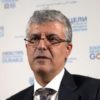
Tareq Emtairah
UNIDO
Director Energy Department
Tareq Emtairah is the Director of the Department of Energy at UNIDO. His work experience spans over 22 years in developed and emerging economies with a progressive focus on sustainable industrial transformation, energy transition, policy advocacy, applied research and capacity development. Before joining UNIDO, he worked as a senior research fellow at the International Institute for Industrial Environmental Economics (IIIEE) at Lund University, Sweden. Prior to that, he served as the executive director of the Regional Center for Renewable Energy and Energy Efficiency (RCREEE) based in Cairo, from 2012-2015.
Emtairah holds a PhD in Industrial Environmental Economics from Lund University in Sweden; a Master’s degree in Environmental Management and Policy also from Lund University; a Diploma in Engineering (Materials Science) from Tokyo Institute of Technology in Japan and a Bachelor’s degree in Engineering and Materials Science from the State University of New Jersey in the United States of America.
Energy Transition in India: Grid Integration Imperatives are now more important than Price Reductions
The price of solar electricity has plunged in India, and solar electricity is now the cheapest electricity available in the Indian electricity market when the sun is shining. However, peak electricity demand occurs in the evening and at night, when the sun is not shining. That highlights the importance of the need for rapid performance improvement and price reduction in storage technologies. In recent tenders, prices for round-the-clock renewable electricity (electricity from renewables and with storage) to be delivered two years from now, are competitive with coal electricity. That suggests that price reduction in renewables may no longer be the constraint to the large-scale integration of variable renewable electricity (VRE) into the grid.
The major challenge is now the integration of variable renewable electricity in the gird. The electricity system must balance supply and demand in real-time, and the increasing volatility of supply and demand suggests that a portfolio of interventions, demand management, and storage (both inter-day as well as seasonal) are essential for real-time balancing. That also indicates that a range of regulatory changes would be needed to enable and prioritise the interventions which will allow real-time balancing. However, the longer-term success in the increased absorption of variable renewables into the grid depends on the financial health of the power distribution companies. In general, the power distribution companies are in a difficult financial state, and upgrading their technical capabilities will be a challenge. Ironically, the deployment of variable renewables (distributed solar PV at agricultural feeders) can be a possible solution since it would reduce the primary source of revenue losses to the electricity distribution companies.

Ajay Mathur
The Energy & Resources Institute
Director-General
Ajay Mathur is the director general of The Energy & Resources Institute (TERI), New Delhi, and a member of the Indian Prime Minister’s Council on Climate Change. Mathur earlier headed the Indian Bureau of Energy Efficiency, and was responsible for mainstreaming energy efficiency through initiatives such as the Star Labeling program for appliances, the Energy Conservation Building Code, and the Perform, Achieve & Trade program for energy-intensive industries. He was a leading climate change negotiator, and was the Indian spokesperson at the Paris climate negotiations.
He served as the interim director of the Green Climate Fund during its foundational period. At TERI, Mathur has spearheaded the move to accelerate action towards a low-carbon and cleaner economy through the adoption of renewable energy in the Indian electricity sector, enhancing efficiency in buildings and industry, and promoting environmental quality through recycling of material wastes and biotechnology-based solutions. He also co-chairs the Global Energy Transitions Commission, and one of the climate initiatives of the One Planet Summit.
Large-scale Karst Thermal Storage Identification Method and Large-scale Sustainable Mining Technology
In order to support the industrial development of middle-deep geothermal district heating, it is important to find geothermal aggregation areas with large reserves of heat resources that are easy to develop and utilise, and to develop the corresponding key technologies for efficient and sustainable development and utilisation. After two decades of exploration and practice, on the basis of inheritance and development, we have perfected the theoretical principle of geothermal system analysis including source, channel, reservoir and cap rock, and the identification method of geothermal reservoir heat-aggregation mechanism.
The first large-scale karst geothermal system was identified on the Northern China Niutuozhen uplift, and a new geothermal genesis model was proposed, which was developed into a low-temperature convection-conduction geothermal system in a sedimentary basin. This is an exceptionally large geothermal system in the Bohai Bay Basin formed on a unique geological-geothermal background. This karst geothermal system is dominated by carbonate rocks of the Wumishan Formation of the Middle and Upper Proterozoic, with large reservoir thickness, high temperature, good reservoir permeability, excellent water quality, easy mining and reinjection. A complete set of reservoir production technologies have been developed for the sustainable utilisation of such geothermal resources through the development of production-reinjection optimisation technologies, dynamic monitoring and numerical simulation technologies.
Based on the combination of political, industrial, academic and research aspects, since 2009 we have implemented a 1 million square meters of geothermal district heating demonstration project in Xiongxian, Hebei. After about five years of construction, it was certificated as the “Xiongxian Model” by the National Energy Administration in 2014 and extended to the whole country. The project is larger than Iceland’s Reykjavik Geothermal Heating Project and is the largest geothermal heating project of its kind in the world to date. After more than 5 years of operation, monitoring and inspection, this project has achieved high quality development standard of 100% reinjection, which is a real demonstration project of geothermal district heating in China. Based on the comparative study of similar reservoir in North China and the whole country, we find that there are many similar reservoirs, and the prospect of technology promotion and application is great.

Zhonghe Pang
Geothermal Resources Research Center - Chinese Academy of Sciences
Director
Zhonghe Pang is the Director of the Geothermal Resources Research Centre at Institute of Geology and Geophysics, Chinese Academy of Sciences. He also serves as the President-Elect of the International Commission on Tracers of the International Association of Hydrological Sciences (ICT-IAHS), Chairman of the Isotope Sub-Committee of the Chinese National Committee of the International Association of Hydrological Sciences (CNC-IAHS), Geothermal Ambassador of the International Geothermal Association (IGA), and Director of the Geothermal Committee of the Chinese Geophysical Society.
Pang has obtained his Doctor’s degree from the Institute of Geology, Chinese Academy of Sciences in 1988, ass the first PhD majoring in Geothermics in China. He was once S&T Director of Geothermal Energy at the International Atomic Energy Agency (IAEA) and Geothermal Planning Consultant for the International Energy Agency (IEA). He has led and completed a number of significant nationally and internationally funded research projects on groundwater resources, geothermal resources and CO2 geological storage.
His major academic achievements include the development of a new theoretical geothermometry for geothermal waters named FixAl method which is widely recognized and applied, the development of a new theory of geothermal resources genesis regarding “conduction-convection” binary heat accumulation in large geothermal fields, leading the research on the roadmap for the development and utilisation of deep geothermal in China, pioneering in frontier technologies such as CO2-EATER, underground heat storage and multi-energy complementation.
Q&A – Energy Session
Overview of the Energy Deep Dive Sessions
- Environmental impacts and public perception of geothermal energy (VITO)
- Geothermal energy in district energy systems (GIEC)
- How SDG-proof is deep geothermal energy? (CIFAL-UNITAR)
- Increasing the sustainability of energy storage (VITO)
- The future of ports and energy hubs (The Blue Cluster)
- Energy statistics, modelling and forecasting in support of NDCs (VITO)

Bai Yu
Guangzhou Institution of Energy Conversion
Deputy Director, Science & Technology Division

Ibrahim Hafeezur Rehman
VITO Arabia Science and Technology
CEO
Ibrahim Hafeezur Rehman is presently Director of India Operations of VITO and also CEO – VITO Arabia Science and Technology LLC, Dubai. VITO is an independent Flemish (Belgian) research organization in the area of clean technology and sustainable development.
With a Master in Organic Chemistry; specialization program in Environment Management from University of Manchester; and a Doctorate from University of Utrecht; Dr Rehman has over 30 years experience in the field of sustainable development in general and water and energy management in particular.
Rehman has led a large number of research and implementation projects in India and across number of other countries in the field of energy, water and environment. Rehman has served on various National and International Committees and Boards of Government/Multi-lateral organizations/Corporates. He has worked in different countries such as India, Belgium, UAE, and Thailand and led a large number of transformative Projects and Campaigns in India, Africa, South East Asia, etc. He is also a co-author of several books and has written a number scientific (and policy) papers/articles in reputed journals (including Nature) and magazines.
Closing remarks – Energy Session

Guy Vekemans
VITO
Strategy Coordinator Sustainable Energy
In 1991, Guy Vekemans started as an expert on energy in buildings at the Flemish Institute for Technological Research (VITO) after which he became a programme manager at the Energy Technology unit. Since 2010, his focus was on the strategic support of the activities on smart grids and smart cities. In 2016 he was appointed Sustainable Energy strategy coordinator for VITO-EnergyVille. EnergyVille was initially set up as a common research initiative between the energy research groups of VITO, the University of Leuven and IMEC.
As business development manager since 2017, Guy Vekemans also contributes actively to Flux50. Flux50 is the Flemish energy cluster, a network of over 130 industrial companies and research institutes bringing energy innovations to the market. Guy Vekemans is active as (board) member in several organisations, including the Organisation Sustainable Energy Flanders (ODE), the Benelux Business Roundtable Energy working group, the European Energy Research Alliance and the Joint Programme Smart Cities.
Energy
Deep dive session
Increasing the sustainability of energy storage
27/10/2020, 11:00 - 13:00
The electrification of transport and the buffering of fluctuating electricity production in the grid are crucial elements of a low-carbon economy. That increases the need for batteries for mobile and stationary energy storage, which in turn requires approaches to extend battery cells’ sustainability. Life cycle assessment provides a tool to minimise the environmental footprint from production to end of life. Increasing the durability of batteries to extend their life cycle triggers opportunities to achieve a more circular value chain. Finally, batteries should provide a more efficient way to include renewables in the energy mix.
Chaired by

Leen Govaerts
VITO Energyville
Unit Manager, Smart Energy and Built Environment
Leen Govaerts holds a Master degree in Business Engineering and an Executive MBA. She started her career as a researcher in the field of low carbon mobility at the VITO research institute on sustainable development. At present she is leading the research unit Smart Energy and Built Environment of VITO Energyville dealing with sustainable energy and urban sustainability. Key research areas are long term energy strategies and policy, energy district design and sustainable building concepts with living labs being a central concept in the research approach.
Leen Govaerts is a member of the Energyville executive committee, a research association of 400 researchers on sustainable energy and cities between VITO, KULeuven, imec and university Hasselt. She is the chairperson of BERA – Belgian Energy Research Alliance – and a member of the Executive Committee of EERA, the European Energy Research Alliance. She is involved in several international networks and has experience in coordinating several European research consortia. She is a recognized expert on behalf of the Flemish Government to evaluate energy and sustainability aspects for renewal of urban districts.
Sustainability Assessment of Batteries in the European Context
Batteries are a key to sustainable mobility and to incorporating renewable electricity generation to the grids. Having a strong battery value chain is of strategic value and importance for Europe. However, developing batteries to meet fluctuating energy demands both regarding mobility and storage is an opportunity for Europe and the rest of the world.
Some important challenges for sustainable batteries include the use of critical raw materials like lithium, cobalt and nickel, raw materials processing and recycling impacts and additionally and also the cost of battery manufacturing. Sustainability evaluation tools such as life cycle assessment to assess sustainability are becoming prominent in their use. However, caution should be applied to the results produced by evaluation tools as they are heavily dependent on the location, time and the assumptions applied.
Europe is moving towards a common benchmark method for assessing the sustainability of various kinds of battery types. The EU Batteries Directive manages the manufacturing, use and disposal of all kinds of batteries and accumulators with certain exceptions. This EU-wide initiative utilises life cycle assessment as a method to evaluate the cradle to grave sustainability of batteries effectively and also to avoid negative unintended consequences of the battery life cycle.

Neethi Rajagopalan
VITO
Senior Researcher
Neethi Rajagopalan is a researcher in the Sustainable Built Environment unit at VITO and works on topics related to the environmental impacts of PV and batteries and building materials. Her focus is primarily on life cycle assessment and life cycle costing of various energy-related technologies.
Currently, Neethi is involved in the European research projects SPIDER, PERCISTAND and NAIMA (under the EU Research & Innovation programme Horizon 2020). She was also involved in the Ecodesign Batteries follow-up technical study using the Product Environmental Footprint method and which was concluded in January 2020. She received her PhD in Civil & Environmental Engineering from the University of Pittsburgh, a Masters in Civil Engineering from Texas A&M University and a Bachelor in Civil Engineering from the University of Madras.
In her previous positions, she has built up extensive experience evaluating life-cycle based tools for assessing the sustainability of bio-based products, designing and conducting workshops on urban sustainability issues, conducting market analyses for providing sanitation strategies in developing countries and also as a Quantity Surveyor for large-scale commercial building projects.
The Energy Storage Partnership: addressing challenges in developing countries
The Energy Storage Partnership (ESP) is an initiative convened by the World Bank in 2019 to foster international cooperation to help develop and adapt storage solutions tailored to the needs of developing countries. During its first year of operation, the ESP has delivered a programme of research, development and deployment support to countries, with particular emphasis on issues related to safety, cost-benefit analysis, performance warranties, integration of storage into mini-grids, procurement frameworks, and environmental sustainability. This session will provide an overview of the energy storage sustainability challenges addressed by the ESP.

Fernando de Sisternes
World Bank / Energy Storage Partnership (ESP)
Energy Specialist
Fernando de Sisternes leads the Energy Storage Partnership secretariat at the World Bank’s Energy Sector Management Assistance Program (ESMAP). Since joining the World Bank, he has worked with teams in West Africa, Latin America, and the Middle East on strategic energy planning, energy security, regional market integration, and renewable energy grid integration. Fernando has 14 years energy sector experience previously working for the Argonne National Laboratory (USA), the International Energy Agency (France), Siemens Gamesa Renewable Energy (Spain), and other organizations as an independent policy consultant with published works in IEEE Transactions on Power Systems, Energy Economics, Applied Energy, among others. He holds a PhD in Technology, Management and Policy, and an MSc in Technology and Policy, both from Massachusetts Institute of Technology (MIT).
Sustainable Batteries: Energy Storage Testbed for knowledge dissemination and capacity building
Globally, nations are moving towards energy independence using cleaner fuels and simultaneously reduce their global carbon footprint. Energy storage is emerging as a solution to a range of problems. Different use cases are continuously developed. In the US, storage has not yet reached a tipping point, but its adoption is accelerating. What are the operational challenges and benefits of these systems, and could they become a cornerstone of smarter, better-integrated grids of the future?
The Living Energy Lab platform will provide for energy storage system innovation with interchangeable features (technologies; and/or ancillary equipment) under controlled conditions (environmental; use cases; operational models) and demonstrate energy storage applications for different use cases. The effectiveness of any test-bed would depend on which technology is used.
Problem analysis of battery storage in developing countries: Developing countries with rural schools and health centres will hugely benefit from an energy supply using both solar and battery technology. Renewable energy sources such as solar power are increasingly being harnessed globally, but how and where to store these energy resources is becoming a problem to be solved.
The presentation will contribute a view on battery technology options for the emerging South African energy storage market with the impact on unlocking energy access for the unconnected. The activities and infrastructure advances from different stakeholders will also be presented.

Mkhulu Mathe
Council for Scientific and Industrial Research (CSIR)
Program Manager – Living Energy Lab Platform
Mkhulu Mathe is the Program Manager for the Living Energy Lab Platform at Council for Scientific and Industrial Research (CSIR), South Africa. He is a contributor to the change management for the newly rebranded CSIR. He has contributed to national Research Development Innovation strategies for the Department of Science and Innovation as a core team member. His research interests include Electrodeposition of Materials, Solar Photovoltaics, and Nanotechnology for Hydrogen Storage, Electrocatalysis in Fuel Cells and Energy Storage via, Li-ion Battery Storage technologies for Renewable Energy and Electric Vehicles.
Mathe provides Visionary Thought Leadership in Key Partnerships, Strategy and Policy Developments, leads Negotiations, and Budget Planning, participates in Media communications (Prolific Author, Speaker and Interviewer)
Mathe received his MSc in Physical Chemistry from University of Transkei, now Walter Sisulu University. He received his PhD from the University of Georgia in Analytical Chemistry/ Electrochemistry under the direction of Prof JL Stickney. He worked on the electrodeposition and characterization of nanocrystalline II-VI and III-V semiconductor materials. He became a Postdoctoral research fellow at the University of Georgia and continued to work with mercury electrodeposition for MCT detectors.
Starting on the right foot – Battery Industry challenges and initiatives

Patrick De Metz
Saft Group
Corporate Environmental and Government Affairs Director
Patrick de Metz is Director of Environmental and Government Affairs at Saft, a Paris based company specialising in the design and manufacture of batteries for high-performance industrial applications. Saft batteries provide back-up power to civilian aircrafts (leading supplier of Airbus, Boeing and other aircraft manufacturers), to nuclear power plants and to railway signalling systems operating in extreme climatic conditions. Saft batteries provide energy to satellites and deep space probes, and ensure the proper operations of mission-critical processes.
Patrick de Metz holds an Engineering Degree (electronic systems major) from ENSTA in Paris and an MBA from INSEAD in Fontainebleau. In the context of recent initiatives regarding mobility electrification, Patrick has been instrumental in the launching of ACC, a joint venture between Saft and PSA Group, whose ambition is to supply 10 to 15% of the batteries needed to power the European EV market by 2030. Patrick is responsible for the of development and implementation of sustainable development policies at Saft.
Battery Materials: where all sustainability challenges meet
With the arrival of vehicle electrification, battery industry is facing a paradigm shift in various ways. Not only do supply expectations evolve exponentially, this new application segment is also firmly embedded in a whole new way of thinking about transport and clean mobility. Batteries do not only have to meet a variety of often conflicting technical & economical requirements, they also have to be “green”. Within a battery, the raw materials tend to be the biggest driver of CO2 footprint and supply concerns. At the same time, the valuable metals it contains also constitute the biggest driver for recycling.
This talk will discuss the different actions a global leader in cathode materials is taking to ensure that that all these boxes remain checked. From surprise visits to the cobalt mines we buy from to performing in-depth Life Cycle Analysis to define a CO2 reduction roadmap. We will try to answer the question how far off we are from a truly green battery closed-loop eco-system.

Tom Van Bellinghen
UMICORE
VP OEM Value Chain
Tom Van Bellinghen joined Umicore in 2009 as the Marketing & Sales Director taking care of Umicore´s Rechargeable Battery Materials business. Working out of Umicore headquarters in Brussels, he divides his time between Belgium and Asia. In 2012 he also became responsible for raw materials purchasing before becoming the VP Marketing and Sales in 2018. Since 2019 he is focusing on managing the relationships with OEMs worldwide and the global marketing responsibility for the Umicore rechargeable battery materials.
Previously, Tom was a business Development Manager at Intel and the BeneLux Country Manager for Flir Systems.
Tom Van Bellinghen holds a Master of Science degree in Electromechanical Engineering from the Catholic University of Leuven and obtained a degree in Business Administration from the Leuven Graduate School for Business Studies.
Panel discussion: Increasing the sustainability of energy storage

Neethi Rajagopalan
VITO
Senior Researcher
Neethi Rajagopalan is a researcher in the Sustainable Built Environment unit at VITO and works on topics related to the environmental impacts of PV and batteries and building materials. Her focus is primarily on life cycle assessment and life cycle costing of various energy-related technologies.
Currently, Neethi is involved in the European research projects SPIDER, PERCISTAND and NAIMA (under the EU Research & Innovation programme Horizon 2020). She was also involved in the Ecodesign Batteries follow-up technical study using the Product Environmental Footprint method and which was concluded in January 2020. She received her PhD in Civil & Environmental Engineering from the University of Pittsburgh, a Masters in Civil Engineering from Texas A&M University and a Bachelor in Civil Engineering from the University of Madras.
In her previous positions, she has built up extensive experience evaluating life-cycle based tools for assessing the sustainability of bio-based products, designing and conducting workshops on urban sustainability issues, conducting market analyses for providing sanitation strategies in developing countries and also as a Quantity Surveyor for large-scale commercial building projects.

Mkhulu Mathe
Council for Scientific and Industrial Research (CSIR)
Program Manager – Living Energy Lab Platform
Mkhulu Mathe is the Program Manager for the Living Energy Lab Platform at Council for Scientific and Industrial Research (CSIR), South Africa. He is a contributor to the change management for the newly rebranded CSIR. He has contributed to national Research Development Innovation strategies for the Department of Science and Innovation as a core team member. His research interests include Electrodeposition of Materials, Solar Photovoltaics, and Nanotechnology for Hydrogen Storage, Electrocatalysis in Fuel Cells and Energy Storage via, Li-ion Battery Storage technologies for Renewable Energy and Electric Vehicles.
Mathe provides Visionary Thought Leadership in Key Partnerships, Strategy and Policy Developments, leads Negotiations, and Budget Planning, participates in Media communications (Prolific Author, Speaker and Interviewer)
Mathe received his MSc in Physical Chemistry from University of Transkei, now Walter Sisulu University. He received his PhD from the University of Georgia in Analytical Chemistry/ Electrochemistry under the direction of Prof JL Stickney. He worked on the electrodeposition and characterization of nanocrystalline II-VI and III-V semiconductor materials. He became a Postdoctoral research fellow at the University of Georgia and continued to work with mercury electrodeposition for MCT detectors.

Dorothée Coucharriere
FIPRA International
Special Advisor for Decarbonization, Clean Energy and Smart Mobility
Dorothée Coucharrière is a policy and legal expert with over 15 years of experience in leading corporate and public affairs in climate change mitigation within the energy and transport sectors. She has recently joined FIPRA International as Special Advisor for Decarbonisation, Clean Energy and Smart Mobility.
Before, Dorothée was the Head of Public Affairs at Bolloré group. She worked on promoting a sustainable framework for the production of batteries in Europe, and on developing zero- emission urban mobility and related IT services.
Dorothée was formerly responsible for transport electrification and urban mobility at the Directorate-General for Mobility and Transport of the European Commission.
Prior to joining the Commission, she started her career at the French National Assembly. She then moved to the energy sector and particularly supported Vattenfall in its industrial development projects in France.
As an adamant believer in new circular business opportunities, she strives to bring together innovative, social and environmental values, to harness the challenge of global warming reduction.
Dorothée graduated from Sciences-Po and holds a MPhil in Comparative Law.

Patrick De Metz
Saft Group
Corporate Environmental and Government Affairs Director
Patrick de Metz is Director of Environmental and Government Affairs at Saft, a Paris based company specialising in the design and manufacture of batteries for high-performance industrial applications. Saft batteries provide back-up power to civilian aircrafts (leading supplier of Airbus, Boeing and other aircraft manufacturers), to nuclear power plants and to railway signalling systems operating in extreme climatic conditions. Saft batteries provide energy to satellites and deep space probes, and ensure the proper operations of mission-critical processes.
Patrick de Metz holds an Engineering Degree (electronic systems major) from ENSTA in Paris and an MBA from INSEAD in Fontainebleau. In the context of recent initiatives regarding mobility electrification, Patrick has been instrumental in the launching of ACC, a joint venture between Saft and PSA Group, whose ambition is to supply 10 to 15% of the batteries needed to power the European EV market by 2030. Patrick is responsible for the of development and implementation of sustainable development policies at Saft.

Tom Van Bellinghen
UMICORE
VP OEM Value Chain
Tom Van Bellinghen joined Umicore in 2009 as the Marketing & Sales Director taking care of Umicore´s Rechargeable Battery Materials business. Working out of Umicore headquarters in Brussels, he divides his time between Belgium and Asia. In 2012 he also became responsible for raw materials purchasing before becoming the VP Marketing and Sales in 2018. Since 2019 he is focusing on managing the relationships with OEMs worldwide and the global marketing responsibility for the Umicore rechargeable battery materials.
Previously, Tom was a business Development Manager at Intel and the BeneLux Country Manager for Flir Systems.
Tom Van Bellinghen holds a Master of Science degree in Electromechanical Engineering from the Catholic University of Leuven and obtained a degree in Business Administration from the Leuven Graduate School for Business Studies.

Fernando de Sisternes
World Bank / Energy Storage Partnership (ESP)
Energy Specialist
Fernando de Sisternes leads the Energy Storage Partnership secretariat at the World Bank’s Energy Sector Management Assistance Program (ESMAP). Since joining the World Bank, he has worked with teams in West Africa, Latin America, and the Middle East on strategic energy planning, energy security, regional market integration, and renewable energy grid integration. Fernando has 14 years energy sector experience previously working for the Argonne National Laboratory (USA), the International Energy Agency (France), Siemens Gamesa Renewable Energy (Spain), and other organizations as an independent policy consultant with published works in IEEE Transactions on Power Systems, Energy Economics, Applied Energy, among others. He holds a PhD in Technology, Management and Policy, and an MSc in Technology and Policy, both from Massachusetts Institute of Technology (MIT).

Leen Govaerts
VITO Energyville
Unit Manager, Smart Energy and Built Environment
Leen Govaerts holds a Master degree in Business Engineering and an Executive MBA. She started her career as a researcher in the field of low carbon mobility at the VITO research institute on sustainable development. At present she is leading the research unit Smart Energy and Built Environment of VITO Energyville dealing with sustainable energy and urban sustainability. Key research areas are long term energy strategies and policy, energy district design and sustainable building concepts with living labs being a central concept in the research approach.
Leen Govaerts is a member of the Energyville executive committee, a research association of 400 researchers on sustainable energy and cities between VITO, KULeuven, imec and university Hasselt. She is the chairperson of BERA – Belgian Energy Research Alliance – and a member of the Executive Committee of EERA, the European Energy Research Alliance. She is involved in several international networks and has experience in coordinating several European research consortia. She is a recognized expert on behalf of the Flemish Government to evaluate energy and sustainability aspects for renewal of urban districts.
Energy
Deep dive session
Geothermal energy in district energy systems
27/10/2020, 08:30 - 09:45
Shallow geothermal systems, hydrothermal processes and hot dry rock provide clean, abundant, and reliable sources of energy, even if unevenly distributed. The integration of such geothermal resources into district energy systems opens up possibilities to build an energy supply chain that meets the electricity, heating, and cooling needs in urban areas. Appropriate energy system development strategies, policies and planning along with technology innovation and commercialisation incentives are essential to realising energy supply chains that are stable, economically feasible, sustainable and secure.
Chaired by

Fangming Jiang
Guangzhou Institute of Energy Conversion, Chinese Academy of Sciences
Director of Advanced Energy Systems Group
Fangming Jiang is a full professor at Guangzhou Institute of Energy Conversion (GIEC) of the Chinese Academy of Sciences (CAS). He founded the Laboratory of Advanced Energy Systems and has been serving as the director of this laboratory since 2011. Fangming Jiang got his PhD degree from the CAS Institute of Engineering Thermophysics in 2001, and MSc a&nd BE degrees from Chongqing University in 1998 and 1995, respectively. During 2002-2011, he worked successively at IMM-GmbH (Germany), the University of Aveiro (Portugal), and the Pennsylvania State University (USA).
Dr Jiang has authored two books, six book chapters and more than 150 peer-reviewed journal articles. He holds 15 China invention patents and copyrights on 29 computational programs. Dr Jiang is active in research areas such as fuel-cell and Li-ion battery science and technology, thermofluidics, geothermal energy exploitation, and CFD. He has contributions in more than 100 academic conferences, including 10+ keynote/plenary lectures.
Geothermal energy in district energy systems: the cheapest heat source in Europe?
Geothermal district heating, where the geothermal resource is connected to a heat network, is an ongoing European success story, with a rate at which new capacity is installed that is increasing every year. The first regions to install geothermal district heating were those with the best hydrothermal potential, but today, with new technologies and systems, an increasing number of regions are turning to it. Its potential is significant and clear, but a level playing field in the heating sector, with well-established and transparent support schemes, must be put in place to reap the full benefits of the latest technological developments. Other heat applications include desalination, growing plants in greenhouses, drying crops, snow-melting, and several industrial processes.

Philippe Dumas
European Geothermal Energy Council
Secretary General
Since September 2008, Philippe Dumas is the Secretary General of the European Geothermal Energy Council (EGEC), an international association founded in May 1998 and based in Brussels, Belgium.
EGEC unites more than 120 European companies and organisations working in the geothermal field and represents 500+ entities from 22 European countries.
The main goal of EGEC is to foster market development for geothermal energy and to work for the improvement of business conditions in Europe.
Rethinking co-generation for a sustainable future
To address climate change, much more is required than switching to environmentally compatible means of transport or installing PVs. What is called for is a combination of different measures addressing the needs of the society. Local communities, in particular, have different needs which can be addressed by consulting the stakeholders and developing appropriate solutions.
Co-generation of heat, electricity, and water using different sources of renewable energy can make a difference. As a case study in Australia illustrates, it is possible to design such systems that lead to affordable products.

Kamel Hooman
University of Queensland
Director of Geothermal Energy Center
On top of his full-time appointment at the University of Queensland, Kamel Hooman has contributed to teaching and research at different universities in Italy, Poland, China, and Malaysia as a visiting professor. In his editorial role, he assists the International Journal of Heat and Mass Transfer as well as the Heat Exchanger Design Handbook to close the gap between theory and practice. Kamel works closely with the industry, in Australia and overseas, to develop technologies for renewable energy and a sustainable future.
Kamel Hooman is the recipient of many awards and fellowships attesting to his national and international recognition. He was named Australia’s Research Field Leader in Thermal Sciences. He has been the QGECE Director and along with his team significantly contributed to the advancement and demonstration of renewable energy technologies in Australia.
Earth-deep GeothermaI Heat Extraction by Super-Long Heat Pipe
A heat pipe is capable of transferring heat very effectively from its high to its low temperature end, relying on the working fluid phase transitions. Using a super-long gravity-assisted heat pipe to exploit earth-deep geothermal energy, the heat pipe is used essentially as a downhole heat exchanger (DHE). However, compared with the conventional DHEs like the U-tube or coaxial tube DHEs, the heat pipe DHE has the advantage of not requiring external pumping power. It can also enhance the heat transfer rate due to very high phase change (of working fluid) heat transfer coefficients. Moreover, the heat pipe system is able to maintain a higher temperature difference between the working fluid and the reservoir, which will promote the fluid natural convection in the reservoir and certainly lead to an increased heat extraction rate. For hot dry rock geothermal energy exploitation, the super-long heat pipe system circumvents the technical difficulties such as fluid loss, corrosion and scaling, and downhole interconnection between wells that are encountered in Enhanced Geothermal System (EGS).
Aiming at developing a super-long heat pipe that can be used for earth-deep geothermal heat extraction, numerical simulations, laboratory tests, and field tests have been conducted in recent years:
- numerical modelling of the super-long heat pipe heat extraction process to study the effects of heat pipe geometric design, operation parameters, and working fluid as well as the local geothermal geological conditions;
- experiments with an extra-long heat pipe (40 m in length, 7 mm in diameter) mimicking the main geometric characteristic (i.e. very large length-to-diameter ratio) of the real super-long heat pipes, to study and correlate the heat transfer performance of the heat pipe with the multiphase flow regime inside;
- a field test to design and manufacture a 3000 m long heat pipe, and successfully install it in a hot dry rock geothermal well.

Fangming Jiang
Guangzhou Institute of Energy Conversion, Chinese Academy of Sciences
Director of Advanced Energy Systems Group
Fangming Jiang is a full professor at Guangzhou Institute of Energy Conversion (GIEC) of the Chinese Academy of Sciences (CAS). He founded the Laboratory of Advanced Energy Systems and has been serving as the director of this laboratory since 2011. Fangming Jiang got his PhD degree from the CAS Institute of Engineering Thermophysics in 2001, and MSc a&nd BE degrees from Chongqing University in 1998 and 1995, respectively. During 2002-2011, he worked successively at IMM-GmbH (Germany), the University of Aveiro (Portugal), and the Pennsylvania State University (USA).
Dr Jiang has authored two books, six book chapters and more than 150 peer-reviewed journal articles. He holds 15 China invention patents and copyrights on 29 computational programs. Dr Jiang is active in research areas such as fuel-cell and Li-ion battery science and technology, thermofluidics, geothermal energy exploitation, and CFD. He has contributions in more than 100 academic conferences, including 10+ keynote/plenary lectures.
Towards a credible low-carbon energy transition with geothermal energy
The energy and environmental transition is underway and will not be easy to achieve. For years, geothermal energy has often been considered a “technical process in itself”, often disconnected from the context in which it is developing. The territory is a key element of this transition in its capacity to pool, federate, provoke synergies. The larger the scale of the energy demand, the easier it is to exceed critical masses, the more diverse the demand mix, the more relevant the possibilities of recovering fatal heat. The building-centred approach is broadening and offers major advantages for high-level energy and carbon efficiency. The cold and heat needs can be simultaneous due to the diversity of uses, the storage needs are relevant to recover fatal heat, the concepts of phase shift / damping produce their maximum effect, the winter / summer effects become productive. Geothermal energy, with its aptitudes to produce cold and heat, to exploit fatal heat, to store, smooth, phase out and dampen becomes relevant. But there again, it is not desirable to stop at “systems” without integrating it more deeply into the project: A high-quality thermal envelope will allow “lower energy levels”, to be able to provide comfort. winter with not very hot water and cooling with not very cold water: A global vision which allows the system to achieve exceptional yields and go beyond the “machine” by integrating the territory, by interconnecting networks and by developing high-quality thermal envelopes: a more integrated response, less “techno”, more credible.

Bruno Georges
OTEIS, France
Director of Major Projects Development and Director of Innovation
Bruno GEORGES created and managed ITF, HVAC & Environment Engineering for 30 years. In 2016, he joined Oteis, an independent engineering group (building, water and infrastructure) of nearly 500 people. Oteis has a turnover of 50M € / year and has 20 agencies located in France. As the Director of Major Projects Development and the Director of Innovation at Oteis, Bruno Georges active co-design with architects and engineering on major projects. It develops OteisLab, RDI pole of Oteis on Research, Development, external oxygenation and Integrated Innovation programs on projects. Its commitment places Oteis at the forefront of Green and Digital engineering : Shared work and collective intelligence. Energy, carbon issues, circular economy, gray energy are at the heart of the actions.
UTES thermodynamics and its application for RHC
Underground Thermal Energy Storage(UTES) plays the key role for future renewable heating and cooling. UTES includes Aquifer Thermal Energy Storage( ATES), Borehole Thermal Energy Storage(BTES), Carbon Capture and Storage(CCS), Cavern Thermal Energy Storage(CTES),Tank Thermal Energy Storage(TTES) and so on.ATES originated in China in early 1960s. It applies for industrial cooling in Shanghai. ATES has been in the Netherlands for 30 years. Currently, We have also conducted large-scale research and application in China, which can be applied in different geological conditions. We also have an upgraded version of ground-source heat pump technology —BTES, which can achieve cold and hot partitions. At present, BTES has also been achieved large-scale applications in China, and at the same time, we have achieved thermal simulation of pipe groups.

Wu Xiaobo
CEEC GEOTHERMAL CO.,LTD, China
Technical Director
Wu Xiaobo, PhD, graduated from the Department of Engineering Thermophysics of Tsinghua University, is currently the technical director of CEEC Geothermal Co., LTD. His field of work is the research and industrialisation of geothermal energy development technologies. As the project leader, he takes the lead and participated in many research projects on the key technology research and the application of CEEC’s major special geothermal energy efficient development and utilisation. He has published numerous articles in the world Geothermal Congress, HVAC and other journals, and holds a number of underground energy storage technology inventions and utility model patents.
Wu Xiaobo has rich experience in the development and construction of geothermal energy core hot and cold renewable energy stations. He participated in and took charge of many renewable energy station construction projects at home and abroad. These include the Japan Mitsubishi Heavy Industries’ aquifer energy storage project, the Shanghai Chongming Island National Facility Agriculture Center aquifer energy storage project, the Shanghai Flower Port Aquifer energy storage project, the Shandong Heze German Vocational Education Center renewable energy project, and the Xiangyang Renewable energy project in Hubei.
Q&A – geothermal technology in district energy systems

Fangming Jiang
Guangzhou Institute of Energy Conversion, Chinese Academy of Sciences
Director of Advanced Energy Systems Group
Fangming Jiang is a full professor at Guangzhou Institute of Energy Conversion (GIEC) of the Chinese Academy of Sciences (CAS). He founded the Laboratory of Advanced Energy Systems and has been serving as the director of this laboratory since 2011. Fangming Jiang got his PhD degree from the CAS Institute of Engineering Thermophysics in 2001, and MSc a&nd BE degrees from Chongqing University in 1998 and 1995, respectively. During 2002-2011, he worked successively at IMM-GmbH (Germany), the University of Aveiro (Portugal), and the Pennsylvania State University (USA).
Dr Jiang has authored two books, six book chapters and more than 150 peer-reviewed journal articles. He holds 15 China invention patents and copyrights on 29 computational programs. Dr Jiang is active in research areas such as fuel-cell and Li-ion battery science and technology, thermofluidics, geothermal energy exploitation, and CFD. He has contributions in more than 100 academic conferences, including 10+ keynote/plenary lectures.
Energy
Deep dive session
Energy statistics, modelling and forecasting in support of NDCs
28/10/2020, 14:30 - 16:00
Due to the COVID-19 crisis, important climate milestones such as COP26 in Glasgow have been postponed. Many Nationally Determined Contributions (NDCs) have encountered delays and many of the underlying assumptions on which NDCs are based – such as the availability of domestic budget resources, access to international climate finance, economic growth and emission trajectories – are coming into question. Mitigating climate change risks by reducing GHG emissions remains a critical part of policies worldwide.
This deep dive session will follow up on suggestions made during the NDC workshop organised at the 2019 edition of the G-STIC conference, which discussed monitoring and reporting progress under the Enhanced Transparency Framework and how to improve engagement and implementation of the NDCs and the progress of the implementation of effective technologies. It will also provide an outlook on NDC updates in the changed reality of 2020.
In particular, this deep dive will provide updated insights, showcase experiences and challenges from 2 example cases on the update of specific countries’ NDCs.
Chaired by

Maarten Pelgrims
VITO
Maarten Pelgrims has experience as a project manager, technical consultant and researcher in environmental, climate change and energy-related projects and programmes.
Currently, Mr. Pelgrims is working as a researcher with VITO/Energyville, where he supports the Energy and Emission through Monitoring & Modelling team. In his current role, he is assisting several research projects in the field of energy and climate policy strategy, policy analysis and policy evaluation. In his last two projects he is leading a Colombian World Bank project to update the NDC and update & consolidation the national sector GHG emissions scenarios 2030 & 2050. He is assisting the development of the Climate and Energy plans and roadmaps towards 2030 and 2050 for the Flemish and Belgian Government.
From 2011 to 2017 Maarten Pelgrims acquired international expertise in multi-disciplinary project development and analytical skills throughout different international projects in the areas of environmental and waste management, climate change and renewable energy. He has a wide international expertise in project design, capacity building and strategic policymaking and project implementation. He was mainly active in the field of environmental consultancy and engineering. His main topics were environmental management, energy efficiency/infrastructure, waste management (policy and strategy) & development of waste treatment facilities (such as landfill design, biomass energy plants, etc.), urban development (e.g. waste water & sanitation management, water supply,…), food safety infrastructure (e.g. food labs, slaughterhouses) and sustainable industrial development (e.g. brick industry, cement industry).
Introduction of the session & panelists, share experiences from current practice
This deep dive session shall throw a glimpse on current research projects and development cooperation in the international context. How can several initiatives support the NDC updates? It will also showcase VITO competencies in the subject of NDCs and broader on the Climate & Energy policy (including Policy evaluation guidelines (ex-post and ex-ante), Quality Assurance & Quality Control (QA/QC), Projections Policies & Measures (how do policies attribute to reach targets) and Energy modelling (scenarios and forecasts).

Maarten Pelgrims
VITO
Maarten Pelgrims has experience as a project manager, technical consultant and researcher in environmental, climate change and energy-related projects and programmes.
Currently, Mr. Pelgrims is working as a researcher with VITO/Energyville, where he supports the Energy and Emission through Monitoring & Modelling team. In his current role, he is assisting several research projects in the field of energy and climate policy strategy, policy analysis and policy evaluation. In his last two projects he is leading a Colombian World Bank project to update the NDC and update & consolidation the national sector GHG emissions scenarios 2030 & 2050. He is assisting the development of the Climate and Energy plans and roadmaps towards 2030 and 2050 for the Flemish and Belgian Government.
From 2011 to 2017 Maarten Pelgrims acquired international expertise in multi-disciplinary project development and analytical skills throughout different international projects in the areas of environmental and waste management, climate change and renewable energy. He has a wide international expertise in project design, capacity building and strategic policymaking and project implementation. He was mainly active in the field of environmental consultancy and engineering. His main topics were environmental management, energy efficiency/infrastructure, waste management (policy and strategy) & development of waste treatment facilities (such as landfill design, biomass energy plants, etc.), urban development (e.g. waste water & sanitation management, water supply,…), food safety infrastructure (e.g. food labs, slaughterhouses) and sustainable industrial development (e.g. brick industry, cement industry).
Setting the scene: the International Policy Framework in 2020
As the administrative secretariat of the UN on Climate Change, the UNFCCC is well placed to discuss NDC progress. The core of the workshop is to follow up on the NDC reporting process and the NDC implementation in general. UNFCCC already received a number of NDC updates and can sketch the expected timelines which were affected by COVID and the postponed COP.
Lessons learnt are captured from the first INDCs and NDCs Parties submitted and while views are collected from different stakeholders, including financing institutes and national development cooperations, on barriers and actions to put NDCs into operation. Next steps will be discussed (February 2021: synthesis of reported NDC updates) along with the road to COP Glasgow.

Sergey Kononov
United Nations Framework Convention Climate Change (UNFCCC)
Manager
Sergey Kononov, a Russian national, is a manager in the Transparency Division of the UNFCCC secretariat. He has been with the United Nations since 1998, including about 18 years of service to the secretariat of the United Nations Framework Convention on Climate Change (UNFCCC).
Kononov has been managing multiple key activities of the secretariat, in particular those relating to international negotiations, such as: coordinating secretariat’s support to the negotiations on the Doha Amendment to the Kyoto Protocol (2011-2012) and the subsequent negotiations on the technical and methodological modalities for the second commitment period under the Kyoto Protocol (2013-2015), and more recently the negotiations on the operational rules and modalities for the implementation of the Paris Agreement in the framework of the Ad-hoc Working Group on the Paris Agreement (2016-2018).
At present, Mr. Kononov is in charge of coordinating within the UNFCCC secretariat the work relating to nationally determined contributions (NDCs) under the Paris Agreement. He also manages secretariat’s support to the international negotiations on issues relating to Article 6 of the Paris Agreement.
Kononov graduated from the Power Engineering Institute (Moscow, Russia) in 1981, and he holds a a PhD in nuclear engineering.
Real-life testimonial: Colombia NDC update
We will also elaborate on project experiences from a current project case in Colombia. Main challenges shall be discussed and ways how to overcome (i.e. project methodology, data collection and modelling runs for different sectors). This presentation will give concrete examples from a good sample country like Colombia. Sharing experiences on NDC update processes can hopefully strengthen trajectories other attendees are involved.

Ricardo Morales Betancourt
Universidad de los Andes (UniAndes)
Professor
Morales Betancourt is national project coordinator at the University of the Andes in Bogotá. As an MSc in Physics, he did a PhD on Atmospheric Sciences in the Georgia Institute of Technology. In 2013, he continued in a Post-doc programme for a short period before returning to Colombia to work on several projects, including the contribution to quantifying impacts of biomass burning emissions (i.e. climate hazards & forest fires) and their health impacts.
With several development finance programmes on air quality modelling in Latin America and the contribution to the set-up of the (I)NDC, Dr Morales Betancourt has a broad knowledge of adaptation and mitigation measures in climate action and the way they shall be reported and monitored. He has reputable specific experience for emissions and all related health and climate aspects. Currently, he is involved in a World Bank project trajectory for the NDC update in Colombia, together with a series of partners.
Development through NDCs: the importance of good
The African continent represents a variety of countries with a wide range of challenges. Overall Climate Change will impact a great deal of the African societies. A broad consensus is already gearing up efforts on Climate Adaptation, but also Mitigation remains vital, especially to increase Access to Energy for All through Renewable & Off-Grid context. For effective NDCs in Africa, good data is paramount. AFREC supports all African countries with Toolkits and Workshops. They have good views on the current challenges for data collection & energy statistics. Mr. Abdallah will discuss current cases and aspired level of ambition.

Rashid Abdallah
African Union Energy Commission (AFREC)
Ali Abdallah
Abdallah holds a MSc in project Management, a Post-graduate Diploma in energy engineering and a B.Sc (Hons) in mechanical engineering. He has 16 years of work experience in the energy sector at the national, regional and continental levels working on energy policy, energy planning, energy projects planning, energy projects implementation.
Currently, he is working at the African Union Commission (AUC) as Acting Head of Energy Division and project Manager of the Geothermal Risk Mitigation Facility (GRMF). This experience has given him excellent overview of the challenges and potentials for development in the electricity sectors in African countries.
His work also involves analysis of the energy sector in the African countries and collaboration with relevant authorities in formulation of energy policies, regulations and strategies that reform the energy sector and enable investments. His work has also exposed him to high-level engagement with policy-makers and other relevant stakeholders including, Regional Economic Communities, Regional Power Pools, Development Partners, International Organizations, Donors, etc., which are crucial in building synergy and consensus in articulating common development agenda for AUC.
Prior to joining the AUC, he worked in the electricity sector in Sudan in several positions for 12 years, where he gained rich experience in project management, especially on energy projects starting from the project initiation phase, bidding document preparation, negotiation with potential contractors, supervision of the design phase and approval procedures, supervision of on-site construction activities. Mr. Abdallah also gained rich experience in electricity sector planning at the national level as well as electricity sector reforms.
Future NDC activities at International Finance Institutes – on financing and governance
The uptake of mitigation measures remains challenging because apart from the technological challenges there is a need for financial support, to build governance capacity and to create societal acceptance. Moreover, for many countries these climate mitigation measures need to be aligned with addressing other societal and environmental challenges as well as economic development. The deployment and implementation will have to be adapted to the local context. Contributing to local implementation NDC targets, NDC guidance needs continuous improvement (as Article 4 foresees). Long term energy and climate strategies will need to integrate technologies in a systematic way, and adapted to local context. The next phase of NDCs can offer a strategic framework looking at greenhouse gas mitigation potential and economic impacts of technology. World Bank has established several collaborations to facilitate this and is currently financing a great deal through existing Trust Funds.
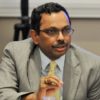
Venkata Raman Putti
World Bank Climate Change Group (WB)
PMR Program Director
Venkata Ramana Putti is the Programme Manager of the Climate and Carbon Finance unit at the World Bank since June 2015. His previous positions at the World Bank Group include leadership of the Carbon Finance Assist programme, and the Energy Access portfolio of the Energy Sector Management Assistance Program (ESMAP).
Before working at the World Bank, he held senior executive positions at UNDP/GEF, Winrock International and TERI, managing national/global clean energy and environment programme portfolios. Dr Putti has authored and edited over 80 publications including books, peer-reviewed articles and technical reports. He holds degrees in civil engineering and business management and a PhD in energy studies.
Q&A – energy statistics, modelling and forecasting in support of NDCs
Keynote speakers
Energy
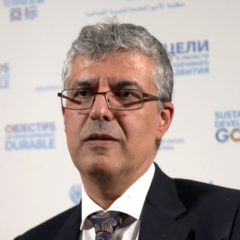
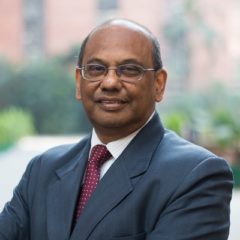

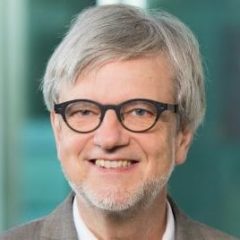
Speakers
Energy



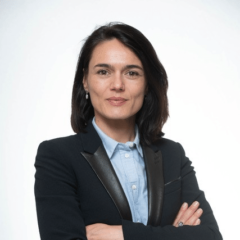
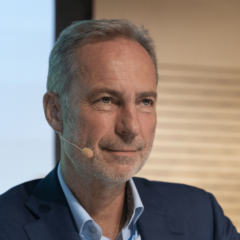
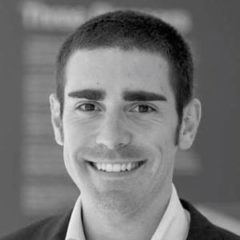
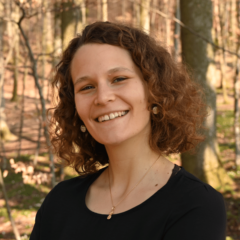
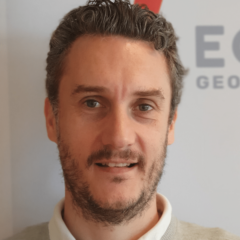
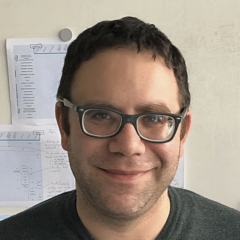
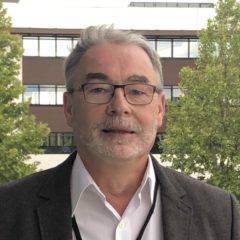
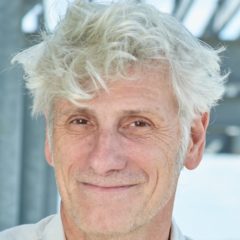
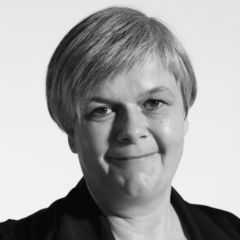
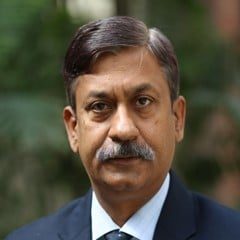
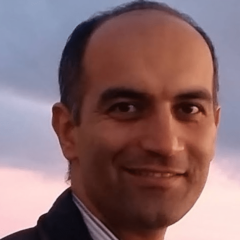
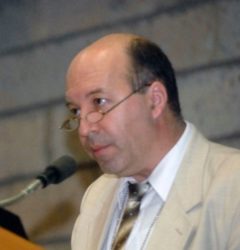
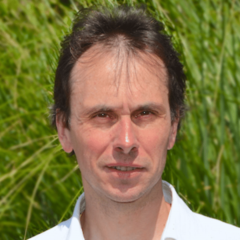



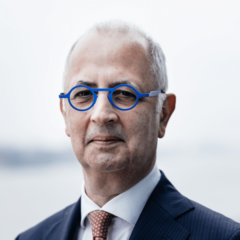

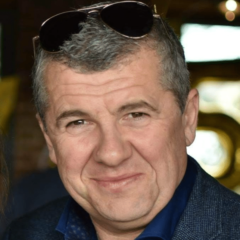
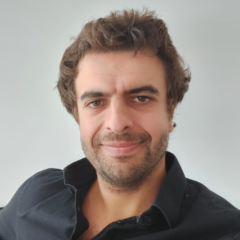
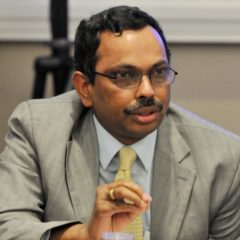

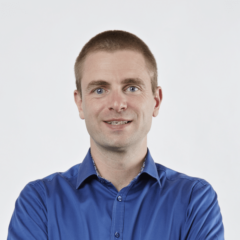

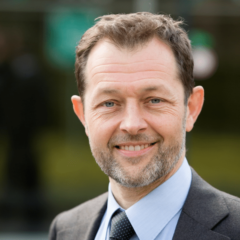
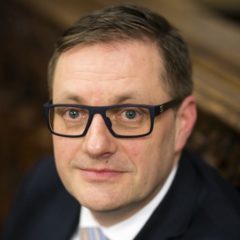
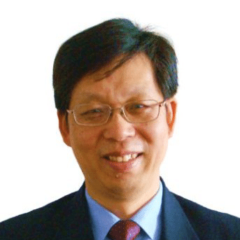
Deep dive sessions
Ensuring reliable access to modern energy solutions
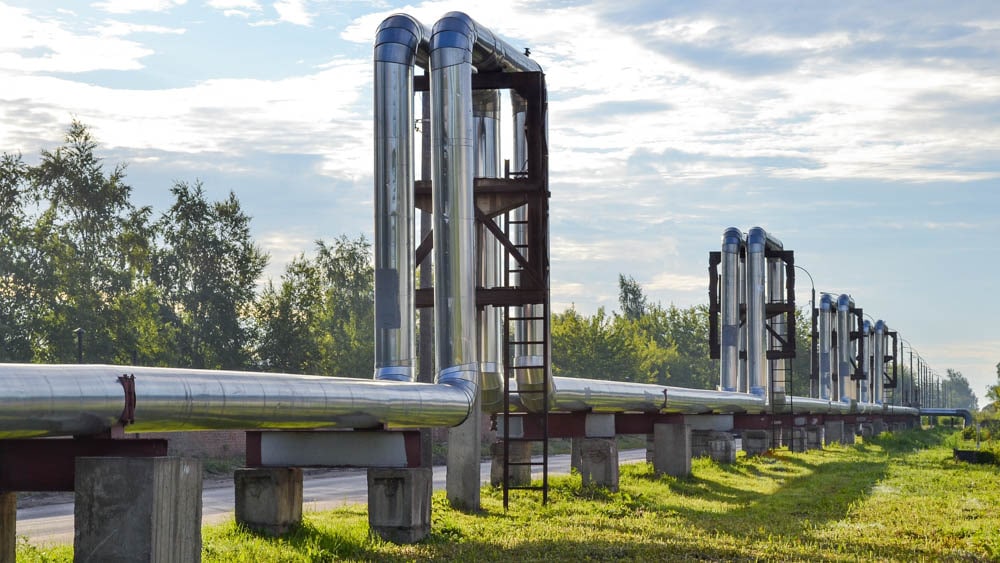
Geothermal energy in district energy systems
Shallow geothermal systems, hydrothermal processes and hot dry rock provide clean, abundant, and reliable sources of energy, even if unevenly distributed. The integration of such geothermal resources into district energy systems opens up possibilities to build an energy supply chain that meets the electricity, heating, and cooling needs in urban areas. Appropriate energy system development strategies, policies and planning along with technology innovation and commercialisation incentives are essential to realising energy supply chains that are stable, economically feasible, sustainable and secure.

Energy statistics, modelling and forecasting
Due to the COVID-19 crisis, many Nationally Determined Contributions (NDCs) have encountered delays. Also, many of the underlying assumptions on which the NDCs are based – such as the availability of domestic budget resources, access to international climate finance, economic growth and emission trajectories – are coming into question. It is therefore more crucial than ever to monitor and report progress under the Enhanced Transparency Framework, improve engagement and implementation of the NDCs and support the implementation of effective technologies.
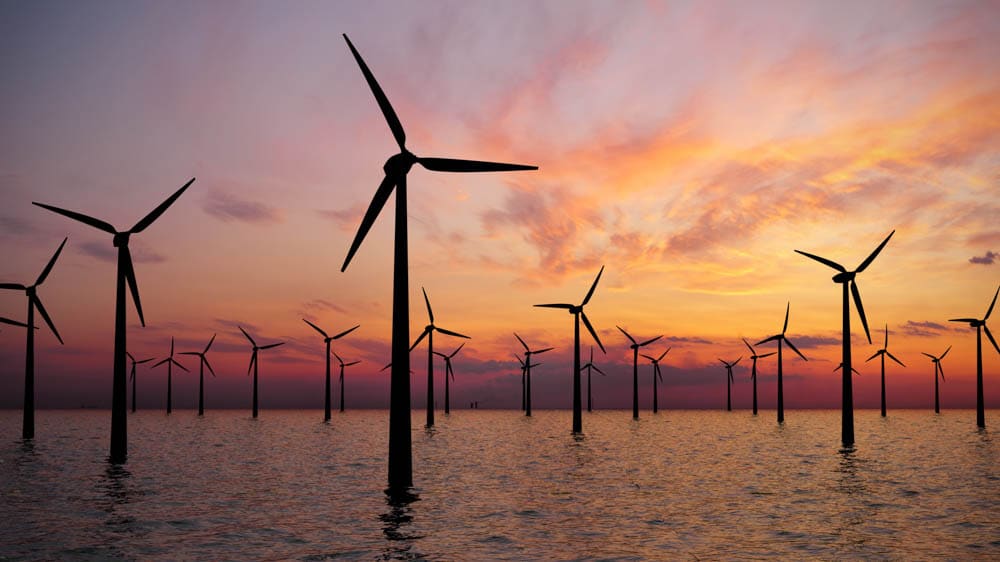
The future of ports and energy hubs
The European Union intends to increase the installed offshore wind capacity to 450 GW by 2050, the hundredfold of the currently installed capacity. Ports are the gateway towards future offshore renewable energy hubs. They are essential for the creation of multifunctional renewable energy islands, the maintenance of offshore wind farms and the production of fuel. And since ports serve as the central hub for the shipping industry, their investments regarding offshore renewable energy will also be decisive for the shift towards a clean shipping industry.
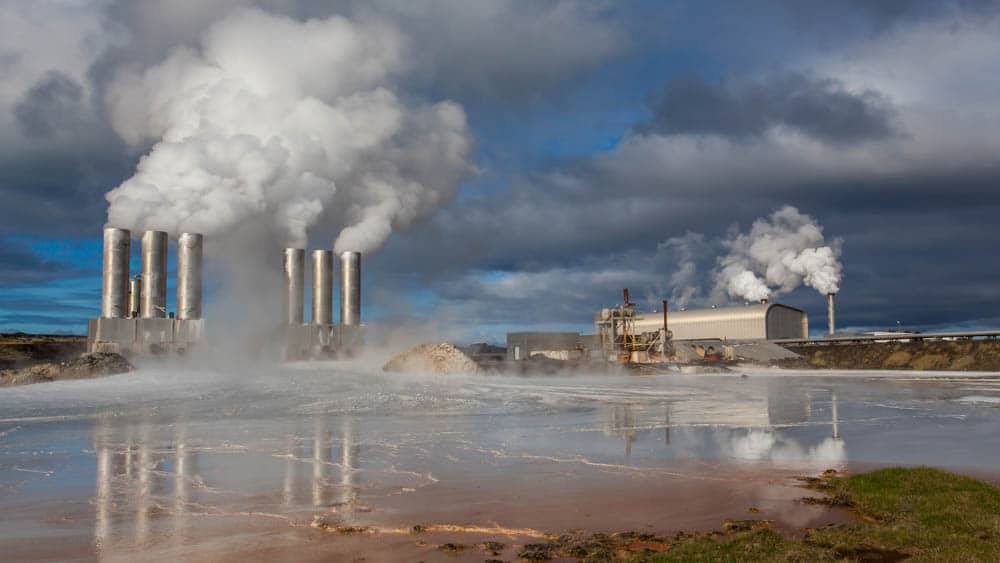
Environmental impacts of geothermal energy
While geothermal sources could play a significant role in ensuring access to energy for all, production today is only at 7% of the estimated global potential. Negative perceptions raise concerns with decision-makers and potential investors about the possible environmental impact and risks of deep geothermal energy production. Social resistance often results in significant slowdowns to the deployment of deep geothermal resources. Life cycle assessment of geothermal projects is the best way to address these concerns and to guarantee deep geothermal energy production complies with environmental regulations.
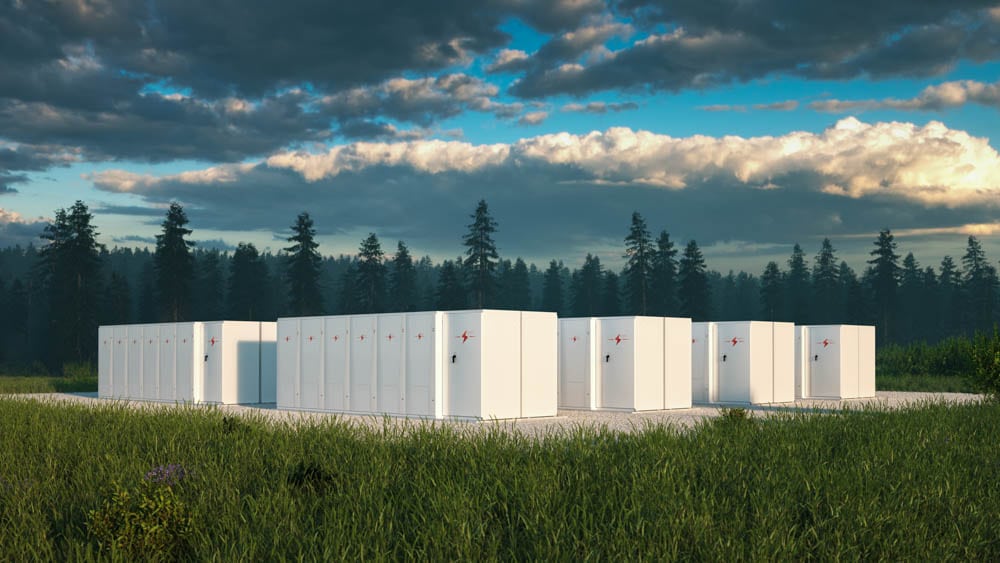
Increasing the sustainability of energy storage
The electrification of transport and the buffering of fluctuating electricity production in the grid are crucial elements of a low-carbon economy. That increases the need for batteries for mobile and stationary energy storage, which in turn requires approaches to extend battery cells’ sustainability. Life cycle assessment provides a tool to minimise the environmental footprint from production to end of life. Increasing the durability of batteries to extend their life cycle triggers opportunities to achieve a more circular value chain. Finally, batteries should provide a more efficient way to include renewables in the energy mix.
Thematic coordinators
Energy




